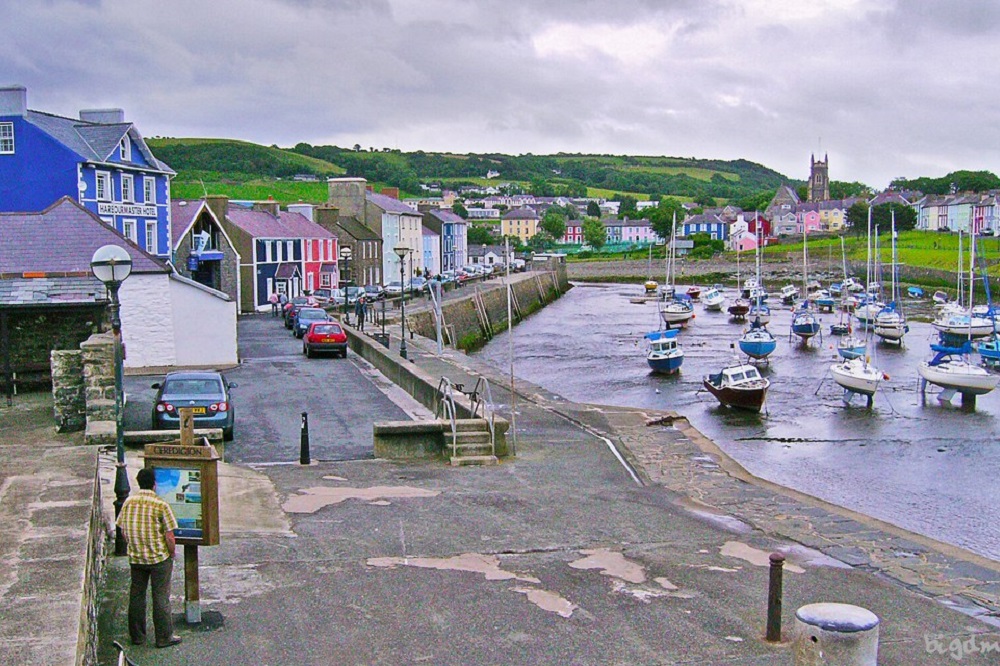Is this house a home: How to take a break in Wales without making the housing crisis worse

Elin Tomos and Ed Straw
Local people from an area with a high proportion of AirBnBs and similar, have been facing a dilemma when themselves booking somewhere for a holiday.
As Elin put it: ‘How can I complain and act on the issue here in Gwynedd if I’m willing to contribute to the issue in Ceredigion or the Lakes?’
Will I become part of the problem by adding to the demand for holiday homes, and so reduce the number of houses for locals and push up prices more widely? That would be hypocritical.
We and friends have found an answer by only booking properties that would not otherwise be available as homes.
Glamping and camping sites, a variety of caravans, shepherds huts, purpose built holiday accommodation, houses too small to live in, garages (really) and conversions of derelict barns that could not be used for housing.
In so doing, far from exacerbating the housing crisis they become net contributors to the local community by bringing investment, work for builders, on-going employment for servicing staff, and spend on local shops and attractions.
All without the great cost to communities of house price inflation and supply reduction.
Nuance
Not all holiday homes are equal. Which raises the question as to whether they should all be treated equally.
Various measures by the Welsh government are in place or under consideration to limit holiday home ownership – land transaction tax, limiting business rate relief, inspections and planning permissions.
Should ‘adding’ holiday homes be exempt from these restrictions?
Would it not, also, make sense for booking agencies such as AirBnB and owners to distinguish on their websites ‘adding’ from ’subtracting’ holiday homes?
‘Adding’ homes would be more desirable for many, once alerted to this difference. AirBnB plus?
Government agencies usually introduce ‘one-size-fits-all’ rules as these make their implementation simpler for them to operate.
But often this hits some of the right targets and some of the wrong.
In the case of holiday homes, a little bit of nuance could go a long way.
The tourism debate has suffered from this lack of distinction.
Figures in billions are publicised to demonstrate the absolute dependence of many parts of Wales on tourism, when in practice about 5% of economic output is directly attributable to tourism spend.
Theme park
So much of this incoming income flows straight out again to non-local and often multinational companies – supermarkets, petrol stations, chain retailers, major attractions, marinas, big hotels and so on.
Tourism bodies promote an area like a theme park: come, use, leave.
Local employment is another of the apparent benefits when, in practice, local school friends could recall no one from their year working in tourism.
Rather they had jobs in such unexpected jewels of Welsh enterprise and expertise as advanced software, automated assembly technologies and the media as well as the more expected agriculture, timber, local government, teaching, wind farms and water management.
Tourism jobs are mostly poorly paid, seasonal and often filled by people in transit.
Understanding carefully and precisely the pluses and minuses of the tourism industry for all involved and impacted would be a good place to start in order to produce a balanced, fair and sustainable tourism strategy and practice.
One act of precision would distinguish adding from subtracting holiday homes in government regulation and agency promotion.
Support our Nation today
For the price of a cup of coffee a month you can help us create an independent, not-for-profit, national news service for the people of Wales, by the people of Wales.






As a permanent resident in Pembrokeshire, I found this a very interesting article. It as got me thinking about my own holiday options as well as encouraged me to refine my thinking on tourism benefits and costs to local communities like ours.
Is a holiday let a home is like saying a caravan is permanent structure not s temporary one if left insitu. And yes, tourism is vital and brings money & investment into those aforementioned areas, but it’s permanent residents that keep those same Welsh communities alive ,& vibrant throughout the rest of the year enjoyed by holidaymakers.
We need to ban second homes and holiday lets. And, in order to achieve this, local residents in areas like mine should only be allowed to sell to other local residents.
How would that work? If I lived in Merthyr Tydfil and wanted to move to Harlech, should I be stopped from doing that because I’m “not local”?
If it’s a permanent move and you can prove its your only residence then would be fine as you would be becoming a local.
We need radical measures to address the housing crisis
Right so your first statement of “We need to ban second homes and holiday lets. And, in order to achieve this, local residents in areas like mine should only be allowed to sell to other local residents.” is rubbish then. Basically you now say “anyone” who moves to your area who proves it is permanent– Does that mean they can never move again!! and becomes local can buy a house. I thought one of the main things “locals” are complaining about was wealthy english people moving to areas in Wales to live and destroying the Welsh langauge and culture. You… Read more »